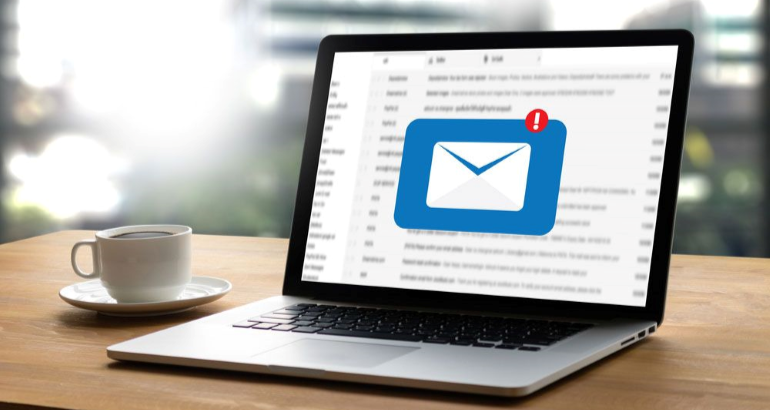Understanding and Preventing Black Friday Email Scams

- Privacy
- Online threats





Overview
As Black Friday approaches, shoppers eagerly anticipate incredible deals and discounts. However, this time of year also attracts an increase in email scams targeting unsuspecting consumers. Scammers often take advantage of the shopping frenzy, sending fraudulent emails that can lead to identity theft and financial loss. Understanding the types of Black Friday email scams and implementing effective prevention methods is crucial for a secure shopping experience. This guide will explore various scams, practical tips for avoiding them, and how using a reliable VPN, like MetroVPN, can enhance your online security during this shopping season.
Contents
Types of Email Scams
1. Phishing Emails
Phishing emails are designed to trick recipients into revealing sensitive information, such as passwords or credit card details. These emails often appear to come from reputable retailers, complete with official logos and branding. Scammers use generic greetings like "Dear Customer" instead of personalizing their messages, which can be a red flag. If you receive an email asking you to verify your account or provide personal details, it's essential to check the sender's address closely for any discrepancies.
2. Fake Promotions
During Black Friday, you may encounter emails offering unbeatable deals that seem too good to be true. These fake promotions lure you in with significant discounts on popular items. However, clicking on these links can lead to phishing sites or malware. Always double-check any promotional offers directly on the retailer’s official website rather than relying solely on email communications.
3. Spoofed Emails
Spoofed emails are crafted to look like they are from legitimate companies. Scammers may change the sender's address slightly, using domains that resemble those of trusted retailers. For instance, an email that appears to come from " sales@amazon.com " might actually be from " sales@arnazon.com ." Always verify the sender's address and scrutinize any links before clicking.
4. Account Verification Scams
Scammers often send emails requesting urgent verification of your account. These emails may claim that there has been suspicious activity and ask you to click a link to confirm your identity. Legitimate companies will never request sensitive information via email, so it’s vital to approach such requests with skepticism.
5. Fake Shipping Notifications
Emails claiming to provide tracking information for purchases you didn’t make can also be a tactic used by scammers. They may ask you to click a link to view the shipment details, leading to a phishing site. Always verify shipping details directly through your account on the retailer’s website.
6. Discount Code Scams
Some emails offer exclusive discount codes that can be redeemed for huge savings. These codes often lead to fake websites designed to collect personal information or install malware on your device. Always verify the authenticity of discount codes from reputable sources.
Prevention Methods
1. Verify Sender Information
Always check the sender's email address carefully. Look for any inconsistencies, such as misspellings or unusual domains, which can indicate a scam. If you’re unsure about an email, contact the retailer directly using a known email address or phone number.
2. Avoid Clicking on Suspicious Links
Hover over any links in the email to preview the actual URL. If the link seems strange or doesn’t match the retailer's website, do not click it. Instead, navigate to the retailer's website directly by typing the URL into your browser.
3. Use Strong Passwords
Protect your online accounts with strong, unique passwords. Consider using a password manager to generate and store complex passwords securely. This minimizes the risk of accounts being compromised if one of your passwords is stolen.
4. Enable Two-Factor Authentication
Whenever possible, enable two-factor authentication (2FA) on your accounts. This extra layer of security requires not just a password but also a second form of verification, making it harder for scammers to access your information.
5. Install a Reliable VPN
A trustworthy VPN, like MetroVPN, can help secure your internet connection and protect your data while shopping online. By encrypting your internet traffic, MetroVPN safeguards your personal information from potential hackers and cybercriminals, especially when using public Wi-Fi networks. MetroVPN is offering a fantastic Black Friday deal: 24 months plan + 6 months free, Get 78% OFF. This is an excellent opportunity to enhance your online security at an affordable price.
6. Educate Yourself on Scammer Tactics
Stay informed about the latest scams and tactics used by cybercriminals. Understanding how these scams operate will help you recognize and avoid them more easily.
7. Report Suspicious Emails
If you receive a suspicious email, report it to your email provider. This helps to reduce the prevalence of scams and protects other users from falling victim.
Conclusion
As the Black Friday shopping season approaches, awareness of email scams is more important than ever. By understanding the different types of scams and implementing effective prevention strategies, you can shop securely and confidently. Remember to use a reliable VPN like MetroVPN to enhance your online security, especially during peak shopping times. Stay vigilant, and enjoy a safe and successful Black Friday!






